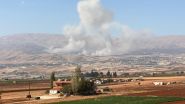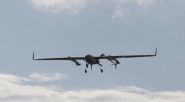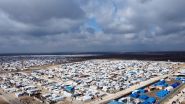
Israel Says Struck Syria-Lebanon Border Crossings Used by Hezbollah
This is Beirut 21/01 22:15

This is Beirut 21/01 22:15

This is Beirut 21/01 11:00

This is Beirut 20/01 13:20

This is Beirut 19/01 12:15

This is Beirut 17/01 20:25

This is Beirut 21/01 21:45

This is Beirut 20/01 16:40

This is Beirut 20/01 13:05

Hussain Abdul-Hussain 20/01 13:00

This is Beirut 20/01 12:45
This is Beirut 16/01 22:00
This is Beirut 15/01 21:05
Hala Abdallah 13/01 17:00
Hala Abdallah 06/01 21:35

This is Beirut 2025-12-21 15:05

This is Beirut 2025-12-21 12:05

Eleonore Stephan for Huna Lubnan 2025-12-21 09:05

This is Beirut 2025-12-20 18:05

This is Beirut 2025-12-20 16:05

This is Beirut 12/01 18:15

This is Beirut 09/01 20:40

This is Beirut 08/01 17:30

This is Beirut 07/01 20:45

This is Beirut 06/01 17:00

Makram Haddad 2025-12-19 08:40

Makram Haddad 2025-12-18 08:50

Makram Haddad 2025-12-17 11:30

Makram Haddad 2025-12-16 09:30

Makram Haddad 2025-12-12 11:10

Bélinda Ibrahim 2025-12-17 11:00

Makram Haddad 2025-12-17 08:50

Bélinda Ibrahim 2025-12-11 10:30

Bélinda Ibrahim 2025-12-10 12:00

Bélinda Ibrahim 2025-12-04 15:05